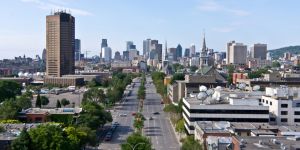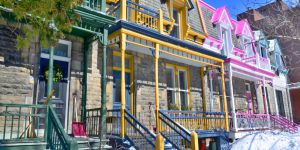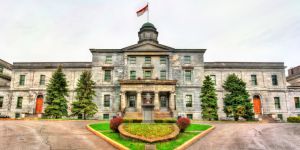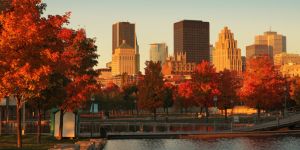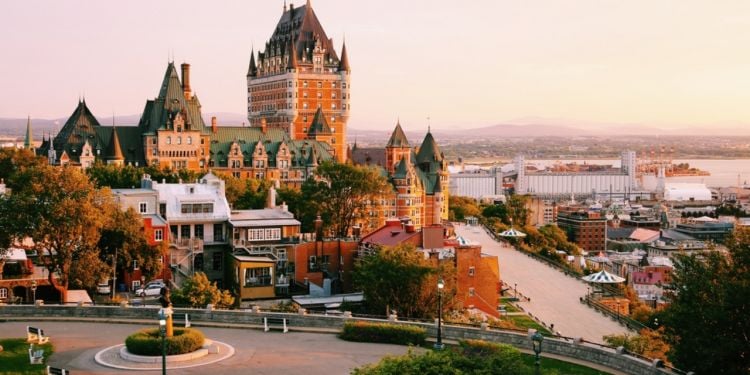
Explore Quebec, a captivating province in Canada attracting thousands. Discover its vast landscapes, diverse seasons, welcoming cities, and thriving immigrant communities. Learn about French-speaking Quebec, its unique charm, and its exciting future.
Planning to make Quebec your new home? Get a glimpse of this Canadian province, drawing in thousands of immigrants from all around the world each year.
Covering an area of 1.7 million square kilometers, Quebec is situated in northeastern North America. Extending nearly 2,000 kilometers from the US border to the boreal seas, its surface area is equivalent to the combined size of Spain, Portugal, France, Belgium, Switzerland, and Germany.
The Quebec landscape boasts almost a million lakes and 130,000 rivers and streams. It is crisscrossed by the St. Lawrence, one of the world's largest rivers. Water plays a vital role as the primary energy source and a cornerstone of the Quebec economy. Forests are abundant, covering nearly half of the territory, totaling over 906,000 square kilometers.
Seasons in Quebec
Quebec experiences four seasons marked by noticeable contrasts, particularly in the southern part of the province. Spring is mild and brief, giving way to a hot and humid summer lasting two to three months. Summer temperatures vary from 15°C to 25°C from north to south, reaching up to 35°C in the southern regions. Early autumn is delightful, with mild temperatures and trees adorned in vibrant colors.
The initial snowfall typically occurs as early as November. Winter extends for five to six months in the South and six to eight months in the North. The average temperature hovers around −10°C from December to February, but the cold's severity differs across regions. In the southern part of the province, there are only around 15 days on average when temperatures dip below −20°C. Generally, January and February are the coldest months, and regardless of the region, the thermometer can occasionally plunge to −40°C on certain days.
Southern Quebec experiences approximately eight hours of daylight in December, marking the shortest duration of the year. Additionally, the northern territories of the Far North have temperate zones where the amount of daylight, the occurrence of northern lights, and the presence of the midnight sun vary based on latitude.
Climate in Quebec
Quebec is categorized into four climate zones: arctic, subarctic, humid continental, and eastern maritime. Cities in the Gaspé and North Shore regions, like Gaspé and Baie-Comeau, enjoy milder winters and cooler summers, thanks to the moderating influence of the St. Lawrence River.
Considering wind and humidity is crucial since they can significantly influence temperatures, either cooling or warming them. Consequently, many Canadian weather sites provide information on both the actual and perceived temperatures. According to a compilation by Quebec meteorologist Gilles Brien, Montreal is listed among the windiest and stormiest cities in Quebec. Moreover, it holds the title for the city with the highest average summer temperature, reaching 19.5°C, compared to Baie-Comeau's more modest 14.2°C average.
Quebec population
Due to its extensive land area, Quebec has a relatively low population density, with an estimated population of 8,787,600 as of January 1, 2023. The majority of Quebec's residents reside in the southern regions, particularly in the fertile St. Lawrence River valley. Indigenous peoples, including Amerindians and Inuit, inhabit approximately fifty communities dispersed across the territory and are commonly known as Aboriginals or First Nations.
The proportion of Quebec residents aged 65 and above is on a steady increase, reaching approximately 20.8% of the population on July 1, 2022, as reported by the Institut de la statistique du Québec. Meanwhile, young individuals under 20 constituted 20.6% of the population, with those aged 20 to 64 making up 58.6%.
In 2022, Quebec welcomed 68,700 permanent immigrants. Among them, economic immigrants constituted the largest group, making up 66% of the total. The "family reunification" category accounted for 19%, and "refugees and persons in similar circumstances" made up 11% of the immigrant population in 2022. These immigrants actively contribute to the economic, social, and cultural development of Quebec. Data released in May 2023 by the Institut de la statistique du Québec revealed that, in 2022, most immigrants came from France, China, Algeria, Haiti, and Tunisia.
As of January 1, 2023, Quebec is home to 57% of Canada's asylum seekers, 16% of temporary workers, and 12% of foreign students, according to estimates. According to the Quebec Immigration Plan 2023, the province aims to admit between 49,500 and 52,500 people in the year 2023.
The primary language spoken by the majority of residents is French, given its status as the official language of the province. However, English is also widely understood and spoken, particularly in Montreal. According to the law, both Parliament and the courts are obligated to work and provide services in both languages. Effective June 1, 2023, public services in Quebec must be delivered in French by the state unless specific exceptions permit the service to be provided in English.
Useful links:
We do our best to provide accurate and up to date information. However, if you have noticed any inaccuracies in this article, please let us know in the comments section below.


